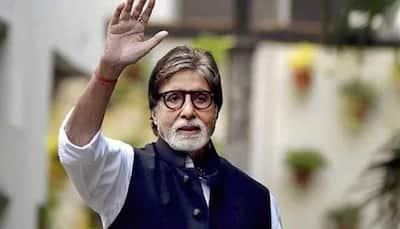
Mumbai: In a society where cultural norms and stereotypes continue to challenge the understandings of gender roles, Amitabh Bachchan’s recent episode of “Kaun Banega Crorepati” (KBC) has become a talking point. The iconic game show saw Big B addressing a controversial comment from a contestant concerning the societal view of unmarried women being regarded as a burden on their families.
During the episode, a contestant, who shared his background as an unemployed engineer affected by the COVID-19 crisis, drew an analogy between being an unemployed man and an unmarried woman in India. Specifically, he referred to both conditions as burdens on their families. He stated, “Agar mei kahu bina shadi ki ladki gharwalo par bojh hoti hai na sir, ek umar hone ke baad berozgar ladke utna hi bojh hote hai,” translating to, “If I say that an unmarried girl becomes a burden on her family, similarly, an older unemployed man also becomes a burden.”
Amitabh Bachchan, the venerable host of KBC and a highly respected figure in Indian cinema and society, did not let this comment pass unchallenged. He interrupted the contestant, offering a firm yet enlightening rebuttal. He stated, “Ek baat batye aapko. Ladki joh hai bojh kabhi nai ban sakti. Bahut badi shaan hoti hai Mahila.” This powerful statement translates to, “Can I tell you one thing? A woman can never be a burden on the family. She is always an honour.” The audience present in the studio responded with loud applause, underlining their agreement with his words.
This moment on television, apart from reasserting Bachchan’s stance on gender equality, sparked a much-needed conversation about deep-seated cultural prejudices. In many parts of India, particularly in rural areas, the concept of women, especially unmarried women, being seen as burdens is prevalent. These outdated stereotypes continue to affect the lives and dignity of countless women.
.
Bachchan, who has been the enduring host of KBC for many years, is known for using his platform to impart life lessons and challenge societal norms. As a father himself to daughter Shweta Bachchan and son Abhishek Bachchan, Big B has never shown any form of gender discrimination within his family. This personal ethos translates into his public persona, making him a credible voice against gender biases.
Rumours have also supported his progressive thinking. There is speculation that Bachchan has named his famous bungalow ‘Pratiksha’ in Juhu after his daughter Shweta, indicative of the respect and love he harbours equally for both his children. This potential namestone perfectly aligns with the narrative he pushed on his show, fostering the message that daughters are not any less valuable than sons.
The contestant’s comment and Bachchan’s response have garnered significant attention on social media, with many lauding the actor for his stance. Tweets and posts flooded with praise for Big B’s words, underlining the importance of using influential platforms like prime-time television to deliver messages that counter deeply ingrained prejudices.
Despite the troubling nature of the contestant’s remark, this KBC episode highlighted the potential for popular media to influence public opinion positively. It showcased the effective use of stardom and public platforms to challenge societal ills and promote progressive values.
The show, over the years, has navigated through various themes and occasional controversial statements from contestants, yet it’s moments like these that become etched in the public’s memory. With Bachchan’s vast experience and wisdom, he continues to remind viewers of the importance of respect and equality.
Amitabh Bachchan’s zero-tolerance stance against calling women burdens, especially unmarried women, encourages a shift in societal values, inspiring respect and honor towards women in every household. The conversation ignited by this episode reaches beyond the KBC studio and resonates within every viewer, necessitating introspection and change in societal norms.
In summary, this KBC episode will be remembered not only for the quiz challenges and prizes but for the powerful message it conveyed, challenging outdated notions and promoting gender equality. Big B’s response embodies the wisdom and progressive nature that have made him a beloved cultural icon for decades.












